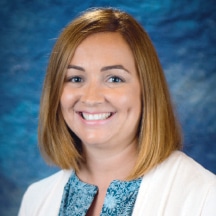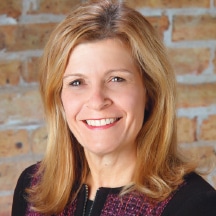Tapping into the Next Gen

For most people, 2020 certainly will be a year to remember. The global COVID-19 pandemic has upended life as we know it. Specifically, for the graduating class of 2020, this year will be remembered as a time when classrooms turned into daily Zoom conference calls, major social events and celebrations were postponed indefinitely, and final assignments were (quite possibly) accepted in the form of YouTube or TikTok videos.
For those gearing up to enter the workforce, the economic climate is uncertain, at best. It’s no longer business as usual. Since March, the pandemic has left many companies and organizations with more questions than answers about the future of their operations. Senior-level management teams have had to make unfortunate layoffs and budget cuts, forcing them to reinvent processes with their leaner teams. If young professionals are fortunate enough to gain employment, they will likely be onboarded courtesy of Microsoft Teams or Skype, as managers and human resources teams continue to adhere to strict guidelines of social distancing.
Pandemic aside, connecting with Generation Z (those individuals born between 1996 and 2012) is paramount, as this cohort is the most diverse and largest in the United States — making up more than 25% of the population, according to a 2018 study conducted by Deloitte. The first generation to never know a world without the internet, Gen Zers are tech-savvy and entrepreneurial, and they highly value diversity and inclusion. They also prioritize financial security, having witnessed their parents’ experiences during the Great Recession.
One particular area of opportunity for associations when it comes to the next generation is education. Gen Z is on track to become the most educated generation yet and is looking to continue that learning and career development. The Deloitte study showed that Gen Z “will be more drawn to organizations that focus on investment in learning and skill/capability development,” an attribute associations should note.
For associations eager to recruit and maintain members of this next generation, run a quick scan of your organizational offerings and ask these questions: In what ways can we learn from young professionals? How can we empower them as professionals? What areas of our organization need to be revitalized (or eliminated)? How can young professionals help us reach our goals? How can we be innovative in our educational offerings? How can we emphasize the benefits of membership, knowing the values of younger generations?
Since hosting events and conferences has been put on pause for the time being, associations can and should get creative to effectively foster a deeper connection with their young professional members. Through online educational resources, webinars and scholarship opportunities, associations with a solid next-generation membership base can choose to reiterate the importance of their organization’s mission and pivot their outreach initiatives in order to meet the needs of students and young professionals at this time. Associations focused on lifelong learning and demonstrating their membership value are already successfully doing this.
Recruit and Engage

Kari Natale, CAE, ICPAS
For almost a decade, Kari Natale, CAE, has worked to “pave the way for tomorrow’s CPAs.” As senior director of both the CPA Endowment Fund of Illinois and planning & governance at the Illinois CPA Society (ICPAS), she oversees the pipeline and diversity initiatives that focus on future generations of CPAs.
“I am responsible for recruiting and engaging student members,” says Natale. “My team members manage our programs and resources for students and conduct campus outreach.” With 2,500 student members across 35 campuses, ICPAS counts on student ambassadors and accounting faculty to help with recruiting efforts. Unlike many associations, ICPAS offers free membership to students and shares valuable educational resources during campus visits. They made the decision to stop charging students a small fee several years ago because it was a barrier to entry for many.
“While recruitment is crucial, we’ve shifted our focus to more student engagement,” says Natale. “When we get in front of students, we will talk about hot topics not directly related to accounting – like how to improve your LinkedIn profile – and then tie back the work we do to help them throughout their career.” On some visits, Natale’s team will also bring young accounting professionals who are alumni of the college to share their experience with current accounting students.
After a student graduates, they receive a complimentary one-year membership, and then they can choose to continue their membership as a working professional. The ICPAS Young Professionals Group (YPG) provides opportunities for these members to develop leadership skills that will enable them to stand out in their career, gain credibility and make those all-important connections. “Many of our young professionals will go on to work for the large accounting firms that support the Society’s efforts and will pay for their membership,” says Kristin McGill, CAE, senior director of membership for ICPAS. McGill has been with ICPAS for four-and-a-half years, and her position is quite different from a typical membership role. “In addition to membership recruitment and retention, we also oversee our young professional and women’s initiatives, as well as outreach to public accounting firms, corporate finance members and chapters,” she says

Kristin McGill, CAE, ICPAS
Currently, ICPAS has more than 23,000 members, with 4,500 of those members being young professionals. ICPAS is an organization focused on serving the needs of certified public accountants, those who are pursuing a CPA, as well as non-CPAs working in accounting and finance.
While networking is a major draw for new association members and the YPG, this is a perk that has to be reimagined as conferences and events across the country have been canceled or postponed. Normally, ICPAS hosts quarterly events like happy hours and other networking events for young professionals, new members and new CPAs. However, several of those are being postponed or moved to a virtual setting. Their Young Professionals Leadership Conference, which is the premier event for young accounting and finance professionals and attracts 250 attendees, was scheduled for August and has recently been changed to a virtual event.
“Right now, we’re encouraging our members to connect via our online community and take advantage of on-demand webinars, conference simulcasts and COVID-19 resources on our website, all of which can be accessed at their convenience,” McGill says.
Careers and Community

Eileen Patton, IREM
Institute for Real Estate Management (IREM) has been very active in engaging young professionals not just in the United States, but across the globe. With 80 domestic chapters and 17 international chapters, IREM works with 36 academic institutions with property management and real estate programs to provide textbooks and curriculum support at no additional cost. “We’ve recognized a need for students and young professionals, and work to create space for them as they grow in the industry,” says Eileen Patton, who serves as manager of academic and next-gen engagement at IREM. Recently, IREM collaborated with 30 other commercial real estate organizations to create Careers Building Communities, a website that highlights the various careers within the industry. “With the website, we want to bring awareness not only to real estate management, but to other occupations that support commercial real estate like landscaping, architecture, finance management and development,” Patton says. “It’s a great entry point for students to figure out what opportunities are available outside of just selling property.”
For a one-time fee of $50, IREM student members have full access to all IREM online resources, educational courses, events and other benefits as long as they’re enrolled full-time at a college or university, and that membership lasts until they graduate. Their membership also allows them to connect with IREM on both the local and national levels. “The membership program is a great opportunity for students to have that first entrance into the professional setting while they’re still taking their classes and getting their degree,” says Patton.

Denise Froemming, CAE, IREM
In her role as CEO and executive vice president at IREM, one of Denise LeDuc Froemming’s priorities is to ensure that Patton and her team are supported in providing students and young professionals with the tools they need to succeed. “When I speak publicly to our industry partners and members, I am always letting them know about the wealth of opportunities we have for students,” Froemming, a CAE, says. “Our responsibility is to ultimately move forward IREM’s strategic plan: engaging and empowering the next-generation workforce and identifying what we can do to create those pathways and opportunities.”
In addition to developing curriculum and work with its global chapters to provide internships, job opportunities and mentorship, IREM spotlights students and young professionals within their broader community through two unique initiatives: Student of the Year and 30 Under 30.
The Student of the Year program, which is application-based, recognizes a full-time college student for academic achievement with aspirations and career goals in real estate management. The winner receives an all-expenses paid trip to the IREM Global Summit — online this year — and will be recognized at an awards ceremony during the conference. “IREM works with many of its partner academic institutions with property management programs to offer scholarships for other students to attend the Global Summit,” says Patton. “It’s a wonderful experience for students to connect with property management professionals and build relationships with future mentors.” Many IREM members are mentors to young professional members and help them to get connected to projects within their community. “Our approach is top down, because we believe it provides an opportunity for more powerful connections,” says Froemming. “Together, we’re able to connect and leverage each other’s strengths.”
In addition, IREM’s 30 Under 30 program acknowledges the next generation of real estate management leaders. Each year, the program highlights 30 young professionals who have already made significant impact on the industry and in their communities. Patton also serves as liaison for two boards that touch the young professional/next-gen group — both of which take a strategic, holistic view of the real estate management profession and how IREM can create a pathway for recent grads.
Answering the Call
In light of COVID-19, both ICPAS and IREM have stepped up to the plate to provide extra support for their student and young professional members.
“We realized that colleges statewide were starting to shut down, and students were going to have to attend virtual classes, and a lot of accounting students don’t have access to good laptops,” says Natale. “It’s hard to complete your spring semester when you are sharing laptops with roommates, siblings and parents, or were relying on school or public libraries to have access to a computer and now have nothing. We were hearing from a lot of students that they were afraid they weren’t going to be able to complete the semester.” ICPAS took action and launched an emergency laptop scholarship for students who didn’t have a computer of their own to use. “We had 216 students apply, which showed that there was an overwhelming need. We were originally going to give away five scholarships, but we got approval from our board to give away 16.”
IREM has created a coronavirus response team and has made most of their live courses virtual and free. “Our priority right now is to provide vital information from the front lines for our property managers,” Froemming says. “We’ve had to pivot quickly to offer resources for those on the ground so that they can immediately put them into practice.”
With so many in-person events canceled or postponed, both organizations are increasing their online activity to keep members engaged and encouraged. Both offer the lesson that now, more than ever, an opportunity exists to authentically connect with the next generation of leaders and put your association in a position to succeed in the future. ICPAS and IREM are two organizations that not only adapted quickly but also are thinking ahead to better serve student and young professional members.
Despite social distancing, economic downturns and fears, passionate students and young professionals are still out there, eagerly and boldly pursuing their careers. And, as these associations have proven, it is the perfect time to embrace that.
HONE YOUR SKILLS. Young professionals can register for the Emerging Leaders program. Registration closes July 31.
Tags
Related Articles
Report Reveals Strategies to Overcome Membership Decline
McKinley Advisors’ Membership Reset report provides a roadmap that association leaders can use to refocus...
Member Retention: More Than Just a Number
Learn how the AANA used humor and multichannel marketing to win back lapsed members.
Building Tomorrow: HACIA’s Member Development Initiatives Are Reshaping the Construction Industry
Jacqueline Gomez, Executive Director of the Hispanic American Construction Industry Association (HACIA), describes the crucial...




